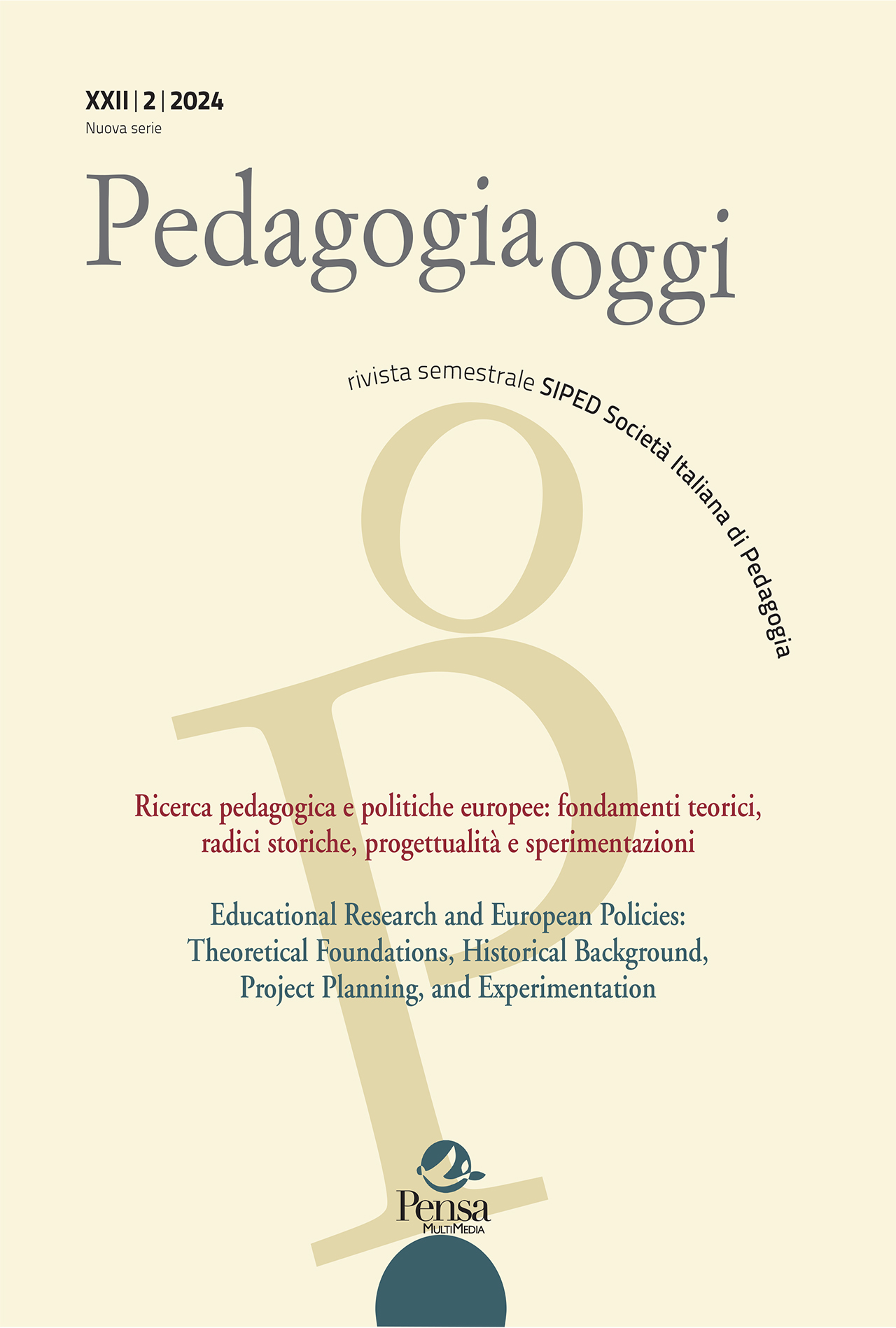The educational value of cultural heritage education: the European contribution to the Italian debate
DOI:
https://doi.org/10.7346/PO-022024-39Keywords:
Heritage Education, Cultural Heritage, Heritage Learning, identity, citizenshipAbstract
In recent years, heritage education has gained prominence in Italian pedagogical research, largely due to European research and collaboration programs such as the Hereduc project (2002) and the ongoing Charter project. This trend has been further strengthened by the "immaterial turn" established by the Convention for the Safeguarding of Intangible Cultural Heritage (Satta, 2013). This paper examines the influence of European guidelines on cultural heritage and their educational value in Italy, highlighting strengths and weaknesses in relation to the institutions developed in response to European initiatives. A transdisciplinary and participatory approach, as advocated by the Faro Convention (Brambilla, 2022), is proposed to make Heritage Education a global strategy (Copeland, 2006) that transcends the Eurocentric perspective, promoting the construction of citizenship and community identity within a planetary and holistic framework (Alivizatou, 2006; Baldacci, 2014).
Downloads
Published
Issue
Section
License
Copyright (c) 2025 Marianna Di Rosa

This work is licensed under a Creative Commons Attribution 4.0 International License.




